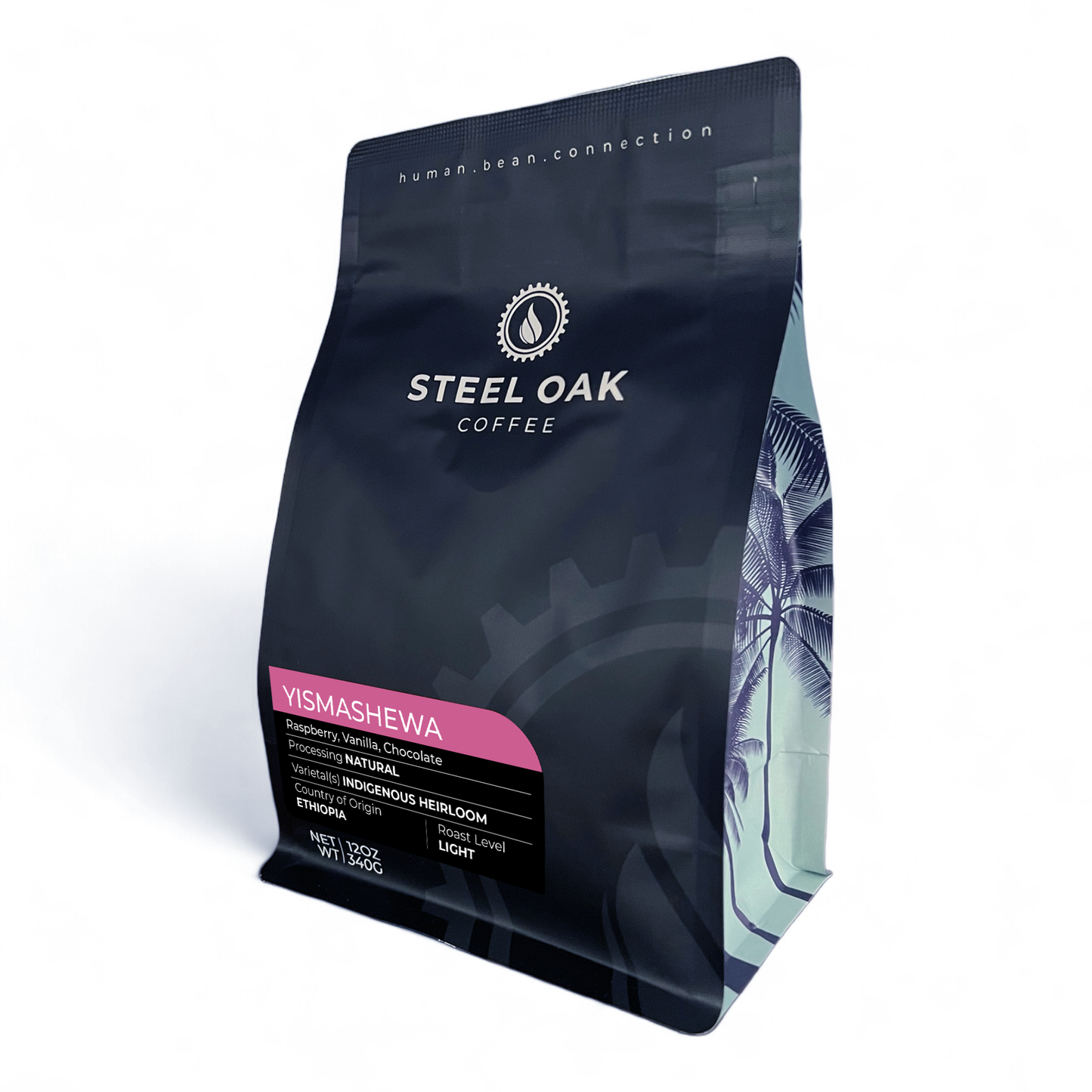Ethiopia - Yismashewa
Ethiopia - Yismashewa
Couldn't load pickup availability
Origin: Uraga, Guji
Processing: Natural, Raised Beds
Altitude: 1,900-2,200 MASL
Varietal(s): Ethiopia Landraces
Roast Level: Light
Cupping Notes: Raspberry, Blackberry, Vanilla, Hibiscus, Chocolate.
We work hard to make sure our Ethiopian selections represent what great coffees from the origin can do in the cup - welcome Yismashewa
At some of Ethiopia’s most extreme altitudes lies Guji’s Uraga region, a dense, mountainous forest that spans almost a thousand miles. Within this immense forest lies an array of distinct subregions, where we source some of the most extraordinary and sought-after coffees we see anywhere in the world. Uraga coffees are profoundly nuanced with a piquant florality and a bright, complex acidity like lime and bergamot backed by stone fruit sweetness like ripe peach. When we taste Guji coffees, we look for that taste that we describe as almost scallion-like when fresh, which ripens into that unparalleled florality on arrival.
The Natural Guji – Uraga is processed at Yismashewa Drying Station. The station is located in the Oromia Region Guji Zone Uraga Woreda Dida Hora Kebele and is owned and operated by Lego Tiba Malde. She started working in the coffee business with her family 15 years ago. Since then she has started her own drying and washing station, creating job opportunities for young women in the area. There are now 130 women working at Yismashewa Drying Station today.
This lot is collected from the Uraga district and delivered to the station for dry processing. Among the farmers, the station works with 19 women farmers from those kebele. The farms have adopted sustainable agriculture methods such as agroforestry. They grow coffee plants among other trees such as fruit and shade trees which allow farmers to balance out the CO2 emissions that coffee cultivation generates. As a result the CO2 is absorbed from the atmosphere to reduce carbon footprint. Their dedication to sustainable agriculture improved the soil health, which in turn maximized coffee quality.


